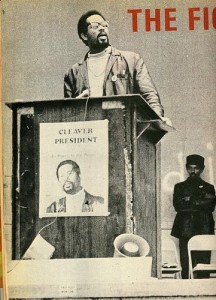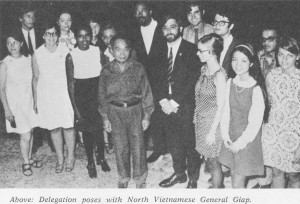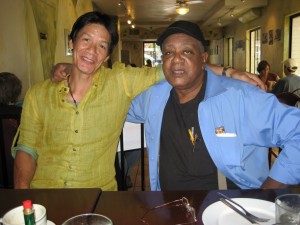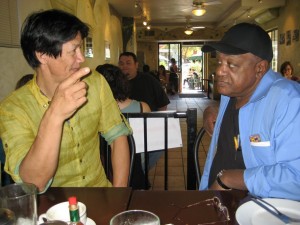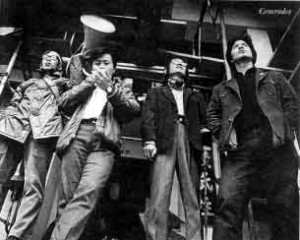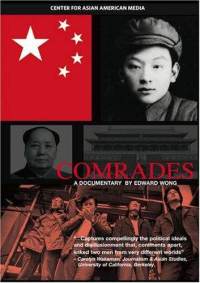I was born and grew up in San Francisco Chinatown and have been active in progressive politics since my college days when I ran for student body president leading a free speech slate at City College of San Francisco. The purpose of the free speech movement was to give a voice on campus to the Civil Rights and Anti-war movements at the time (1965).
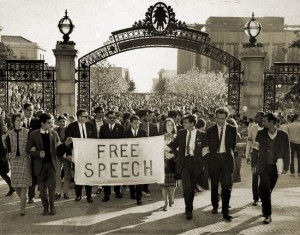
Like many youth of that period, I dropped out of college (UC Berkeley) to become active in the Sixties Movements. I got a job as a dishwasher and janitor in a coffeehouse and became a member of the Miscellaneous Culinary Workers Union, Local 110 in 1967. I have been a member of the union and a restaurant worker ever since. In 1967, I was registering African American voters, going door to door in the Fillmore, to put the Peace and Freedom Party
on the ballot in California with Eldrige Cleaver for President.In 1968, I joined a bus caravan across the American South as part of the SCLC-led Poor Peoples Campaign honoring the legacy of Dr. Martin Luther King, Jr. who was assassinated that year. The campaign united poor people from all parts of the country camping out and protesting daily in Washington, D.C. lobbying for everything from Chicano land rights to full employment, education, health care and housing for all people. During that campaign I met only two other Asian Americans and became determined to promote the Movement in Chinatown.

With the help of jobless youth in Chinatown, I participated in the founding of the Red Guard Party, promoting a platform similar to the Black Panther Party’s in the Chinese community. The Red Guard’s first activity was to provide community support for the Third World Liberation Strike at San Francisco State College, which led to the establishment of Ethnic Studies. The party also initiated a successful petition campaign to rescue the only TB testing center in Chinatown and joined with other groups to promote better education, prevent the destruction of low-cost housing (including the International Hotel), oppose the Vietnam War and call for the US recognition of the People’s Republic of China, among other struggles. Because of these activities, I was invited to join a Black Panther Party-led delegation to Socialist Asia in 1970.
Due to police repression, the Red Guard Party was forced to disband but I continued to do political work in Chinatown, helping to form the Asian Legal Services which had, among other services, draft counseling which assisted hundreds of Asian American youth to escape being drafted into the war as well as successfully assisting military personnel opposed to the war become conscientious objectors.In the Union during the ‘70‘s, after the culinary craft unions merged to form the Hotel and Restaurant and Bartenders International Union, I participated in a successful ten year organizing campaign to win democracy for the rank and file, in opposition to the inept, entrenched leadership of the local. As a part of this struggle, I was elected to the citywide hotel workers rank and file negotiating committee of Local 2 and helped lead the historic four week Hotel Strike of 1980 which won significant gains for the members. In 1983, I moved to New York and joined Local 6. In 1985, I participated as a rank and file activist in the New York hotel strike which lasted six weeks. I was a shop delegate in my hotel since moving to New York and was elected to several positions in the Union. I retired as a Trustee of Local 6. In the New York Chinese community, I participated in the Chinese Progressive Association’s Workers Center that conducted worker education and promoted trade unionism. The Center assisted in the successful boycott of the Hunan Garden whose owners tried to fire the union shop steward. The Worker’s Center also hosted an annual Asian Labor Issues course at Cornell University. Out of the Cornell classes a conference was held that led to the formation of the Asian Labor Committee of the New York Central Labor Council, AFL-CIO.In 1991, I was appointed by the Union to the AFL-CIO Interim Steering Committee of Asian American Workers serving on the Constitution Committee which led to the founding of Asian Pacific American Labor Alliance (APALA) and chaired its first Budget Committee. APALA is the first and only national organization of Asian Pacific trade unionists. I was a member of the National Executive Board since APALA’s founding for 30 years and was the New York Chapter Secretary for a number of years. http://www.apalanet.org/
Alex Hing and Bobby Seale
Film Review: Comardes
Read more: https://www.twn.org/catalog/pages/responsive/cpage.aspx?rec=1036&card=price

